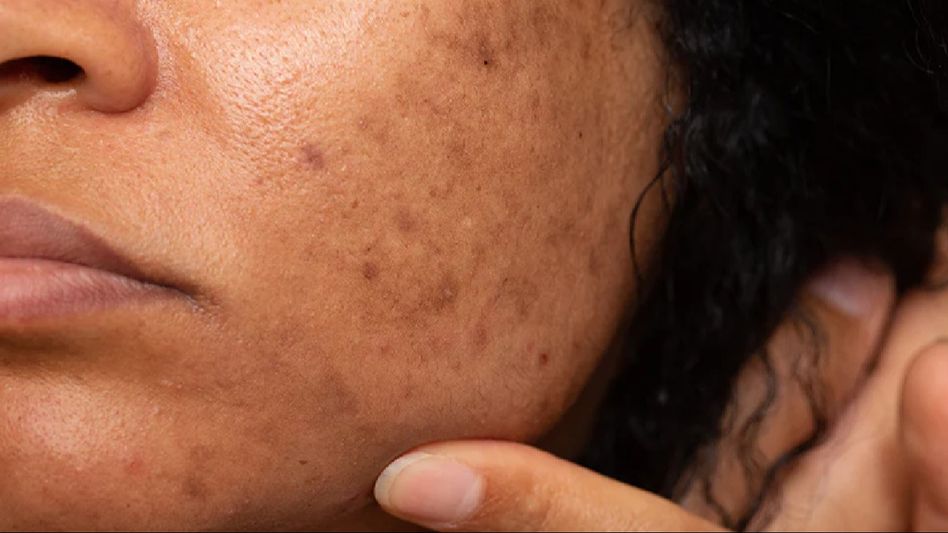Unveiling Vitamin C: A Friend in Fading Dark Spots?
Vitamin C, a well-known antioxidant, is often touted for its ability to brighten the skin and diminish the appearance of dark spots, particularly those left behind by acne.

Vitamin C, a well-known antioxidant, is often touted for its ability to brighten the skin and diminish the appearance of dark spots, particularly those left behind by acne. While it holds some promise, it's crucial to approach its effectiveness with a nuanced understanding.
Potential Benefits:
Melanin Modulation: Vitamin C is known to inhibit the activity of tyrosinase, an enzyme critical for melanin production. Melanin is the pigment responsible for skin color, and its overproduction can lead to hyperpigmentation, manifesting as dark spots. By regulating tyrosinase, vitamin C may help prevent further darkening and potentially lighten existing dark spots.
Antioxidant Powerhouse: Vitamin C's antioxidant properties help combat free radical damage, which can contribute to hyperpigmentation and premature aging. By neutralizing these damaging molecules, vitamin C may create a more favorable environment for healthy skin regeneration, potentially aiding in fading dark spots over time.
Collagen Synthesis: Vitamin C plays a vital role in collagen production, a protein that provides structural support and elasticity to the skin. Adequate collagen levels are crucial for maintaining a healthy, youthful appearance and promoting wound healing. In the context of dark spots, improved collagen production could potentially accelerate the fading process.
It's Not All Sunshine and Rainbows:
While the research suggests potential benefits, it's important to acknowledge the limitations:
Limited Research: While studies exist supporting the use of vitamin C for hyperpigmentation, the research is ongoing and not entirely conclusive. More robust and controlled studies are needed to fully understand the effectiveness and optimal application of vitamin C for fading dark spots specifically caused by acne.
Individual Variability: Everyone's skin reacts differently to topical treatments. What works wonders for one person might have minimal or no effect on another. Factors like skin type, severity of hyperpigmentation, and other skincare practices can influence the results.
Consistency is Key: Even if effective, vitamin C takes time to show noticeable results. Consistent application for several weeks, often months, is necessary to truly assess its impact. Be patient and realistic about your expectations.
Beyond Topical Application:
While topical vitamin C serums and creams are commonly used, it's important to remember that a holistic approach is crucial for overall skin health and potentially improving the appearance of dark spots. This includes:
Sun Protection: UV rays are a major trigger for hyperpigmentation. Consistent and diligent use of sunscreen with SPF 30 or higher is essential to prevent further darkening of existing dark spots and protect your skin from future damage.
Healthy Diet: Consuming a balanced diet rich in fruits, vegetables, and whole grains provides your body with the essential nutrients it needs for healthy skin regeneration and overall well-being.
Hydration: Staying well-hydrated is vital for healthy skin function. Aim to drink plenty of water throughout the day to keep your skin plump and promote healthy cell turnover, potentially aiding in the fading of dark spots.
Vitamin C offers potential benefits for fading dark spots, but it's not a magic bullet. While research suggests potential, it's essential to manage expectations and understand that results may vary. A consistent approach that incorporates topical vitamin C alongside sun protection, a healthy diet, and proper hydration is key to achieving optimal skin health and potentially improving the appearance of dark spots.
Copyright©2025 Living Media India Limited. For reprint rights: Syndications Today









